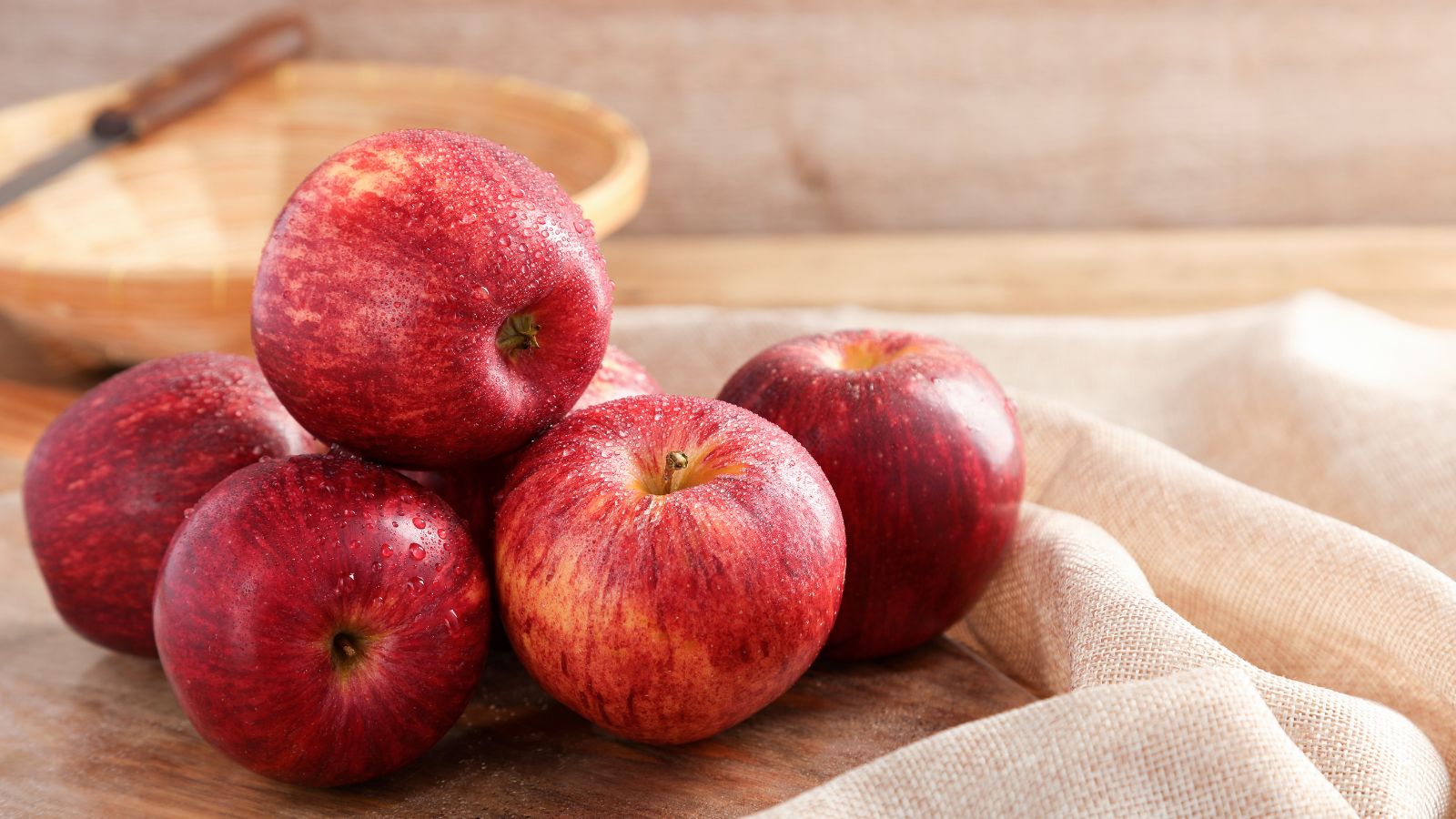Refrigerators are one of the greatest inventions of all time, as they keep our food fresher and edible for longer. However, don’t be fooled into thinking that they’re good for all foods. In plenty of situations, your fridge just doesn’t do the job, and here are some foods that fare very poorly in it.
Garlic

Another vegetable that can sprout randomly in your kitchen is garlic, especially if it’s kept in your fridge. It will also develop a rubbery texture, and no one wants that, so for optimal freshness, store garlic bulbs in a cool, dry place with plenty of air circulation, away from those pesky potatoes.
Tomatoes

Contrary to popular belief, tomatoes lose their flavor and develop a mealy texture when chilled. They ripen best at room temperature, so they’ll be fine placed on the counter as long as you keep them out of direct sunlight. Once fully ripe, consume them within a few days for the best taste.
Bread

There’s a lot of heated debate as to whether you should refrigerate bread, but the overall consensus is that it speeds up the staling process, making it dry and tough. Keep bread in a bread box or airtight container at room temperature, and you’ll not only have fresher bread, but you’ll save a lot of space in your fridge, too.
Bananas

One of the worst foods to keep inside the refrigerator is the humble banana, which will always ripen at the optimum rate when kept at room temperature. As The Guardian explains, refrigeration disrupts this process, leading to brown, mushy spots and cold temperatures, which also slow down the enzymes responsible for ripening. For best results, store bananas on the counter away from direct sunlight.
Potatoes

Few people realize that cold temperatures turn potato starch into sugar more quickly, altering its flavor and texture completely. So, it’s much smarter to keep potatoes in a cool, dark place, such as a cupboard. This helps maintain their taste and prevents them from becoming sweet and gritty.
Onions

Unless you want soft and moldy onions, don’t store them in the fridge. They need a dry, albeit well-ventilated space to stay fresh, so keep them in a mesh bag or basket in a cool, dark spot. However, don’t keep them anywhere near your potatoes, which will cause them to sprout.
Avocados

Another food that is commonly stored in the fridge but really shouldn’t be is avocados, which need to be at room temperature to ripen properly. Refrigerating them can halt this process, just like with bananas, leaving you with hard, tasteless fruit. Keep avocados on the counter until they soften, and they’ll be good to go for a couple of days.
Honey

There’s no need to keep honey in the fridge, as it contains natural preservatives, so it’s fine in a cupboard. Furthermore, honey also crystallizes and becomes grainy in cold temperatures, so to keep your honey smooth and easy to pour, just keep it in an airtight container somewhere at room temperature.
Coffee

While it’s pretty rare to store coffee in the fridge, some people do it, which is an awful idea. This will cause it to absorb moisture and odors from other foods, leading to a stale taste. Keep coffee beans or grounds in an airtight container in a cool, dark place, and you’ll preserve its rich flavor for quite some time.
Basil

If you’ve ever tried it, you’ll know that basil wilts quickly in the fridge, losing its vibrant color and aroma. So, it’s best kept in a glass of water on the countertop, similar to fresh flowers. For longer storage, you can also freeze basil in oil or as pesto, which is great if you purchased or grew too much.
Olive Oil

It’s never smart to keep oil in the fridge, especially olive oil, which solidifies and becomes cloudy when you do. This doesn’t harm it, but it does make it harder to use, so just store it in a cool, dark cupboard to keep it liquid and ready for cooking or dressing salads.
Apples

For the best taste and texture, it’s best to keep apples at room temperature, as refrigerating them can make them lose their crispness and flavor over time. They stay fresh for weeks when stored in a cool, dark place like a pantry, although if you have already sliced them, then the fridge is your only option.
Melons

Unless you want to dull their flavor, whole melons, such as watermelon, cantaloupe, and honeydew, should never be kept in the fridge. Room temperature is just fine, but much like apples, they will need to be stored in the fridge after being cut, lasting a few days in an airtight container after you do so.
Peaches

Like many fruits on this list, peaches ripen best outside the fridge. Cold temperatures can halt their ripening process, resulting in a less juicy, flavorful fruit. Nobody wants that, so just leave your peaches on the counter until they soften. After that, they can be refrigerated for a short period.
Oranges

Contrary to popular belief, oranges can lose their juiciness and become overly soft in the fridge, and they keep well at room temperature for up to a week, so there’s really no point. For longer storage, they can be refrigerated, but they’re never going to taste as full-flavored, so we wouldn’t recommend it.
Peanut Butter

It probably sounds like a strange idea to refrigerate peanut butter, and that’s because it is. This will only make it hard and difficult to spread, and most commercial peanut butter is shelf-stable and can be kept in the pantry.
Ketchup

Another controversial item on this list is ketchup, which many people keep in the fridge. However, this really isn’t necessary; it contains preservatives that keep it fresh at room temperature even after opening. Furthermore, refrigeration can cause the sauce to thicken, which nobody wants.
Soy Sauce

Due to the high salt content of soy sauce, it’s really not necessary to keep it in the fridge, as it is naturally preserved. This remains the case even after opening; just store it in a cool, dark cupboard to maintain its flavor for months.
Hot Sauce

Many people will be surprised to learn that most hot sauces do not require refrigeration, as they contain vinegar and salt, making them shelf-stable. In fact, refrigerating hot sauce can alter its flavor and consistency completely, so keep it in the pantry to maintain its taste and heat. Don’t forget to shake the bottle well before each use.
Vinegar

It’s probably unsurprising to learn that vinegar doesn’t need to be refrigerated due to its high acidity, which preserves it naturally. Anyway, cold temperatures can cause sediment to form, which really isn’t pleasant, so just keep it in the cupboard to keep it clear and ready for use in cooking.
Dried Fruit

Even if your fruit is dried, it’s still a bad idea to store it in the fridge, as this will cause it to harden and lose flavor. It’s best stored in an airtight container at room temperature, helping to keep it soft and chewy, making it a convenient and tasty snack option.

